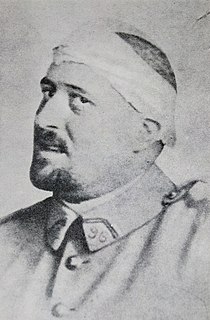A Quote by Oswald Spengler
Critical (i.e., separating) methods apply only to the world-as-nature. It would be easier to break up a theme of Beethoven with dissecting knife or acid than to break up the soul by methods of abstract thought . Nature-knowledge and man-knowledge have neither ways nor aims in common.
Related Quotes
I am convinced that it is impossible to expound the methods of induction in a sound manner, without resting them upon the theory of probability. Perfect knowledge alone can give certainty, and in nature perfect knowledge would be infinite knowledge, which is clearly beyond our capacities. We have, therefore, to content ourselves with partial knowledge - knowledge mingled with ignorance, producing doubt.
Everyone recognizes a distinction between knowledge and wisdom. . . Wisdom is a kind of knowledge. It is knowledge of the nature, career, and consequences of human values. Since these cannot be separated from the human organism and the social scene, the moral ways of man cannot be understood without knowledge of the ways of things and institutions.
Surely knowledge of the natural world, knowledge of the human condition, knowledge of the nature and dynamics of society, knowledge of the past so that one may use it in experiencing the present and aspiring to the future--all of these, it would seem reasonable to suppose, are essential to an educated man. To these must be added another--knowledge of the products of our artistic heritage that mark the history of our esthetic wonder and delight.
Men always fool themselves when they give up experience for systems born of the imagination. Man is the work of nature, he exists in nature, he is subject to its laws, he can not break free, he can not leave even in thought; it is in vain that his spirit wants to soar beyond the bounds of the visible world, he is always forced to return.
Without poets, without artists, men would soon weary of nature's monotony. The sublime idea men have of the universe would collapse with dizzying speed. The order which we find in nature, and which is only an effect of art, would at once vanish. Everything would break up in chaos. There would be no seasons, no civilization, no thought, no humanity; even life would give way, and the impotent void would reign everywhere.
The Red Cross in its nature, it aims and purposes, and consequently, its methods, is unlike any other organization in the country.It is an organization of physical action, of instantaneous action, at the spur of the moment; it cannot await the ordinary deliberation of organized bodies if it would be of use to suffering humanity,[ellipsis in original] it has by its nature a field of its own.
But if men would give heed to the nature of substance they would doubt less concerning the Proposition that Existence appertains to the nature of substance: rather they would reckon it an axiom above all others, and hold it among common opinions. For then by substance they would understand that which is in itself, and through itself is conceived, or rather that whose knowledge does not depend on the knowledge of any other thing.
Socialism is young and has made errors. Many times revolutionaries lack the knowledge and intellectual courage needed to meet the task of developing the new man with methods different from the conventional ones - and the conventional methods suffer from the influences of the society, which created them.
The essences of the Gods never came into existence (for that which always is never comes into existence; and that exists for ever which possesses primary force and by nature suffers nothing): neither do they consist of bodies; for even in bodies the powers are incorporeal. Neither are they contained by space; for that is a property of bodies. Neither are they separate from the first cause nor from one another, just as thoughts are not separate from mind nor acts of knowledge from the soul.
I have respect for mother nature's methods of robustness (billions of years allow most of what is fragile to break); classical thought is more robust (in its respect for the unknown, the epistemic humility) than the modern post-Enlightenment naïve pseudoscientific autism. Thus my classical values make me advocate the triplet of erudition, elegance, and courage; against modernity's phoniness, nerdiness and philistinism
Nature consists of facts and of regularities, and is in itself neither moral nor immoral. It is we who impose our standards upon nature, and who in this way introduce morals into the natural world, in spite the fact that we are part of this world. We are products of nature, but nature has made us together with our power of altering the world, of foreseeing and of planning for the future, and of making far-reaching decisions for which we are morally responsible. Yet, responsibility, decisions, enter the world of nature only with us








































